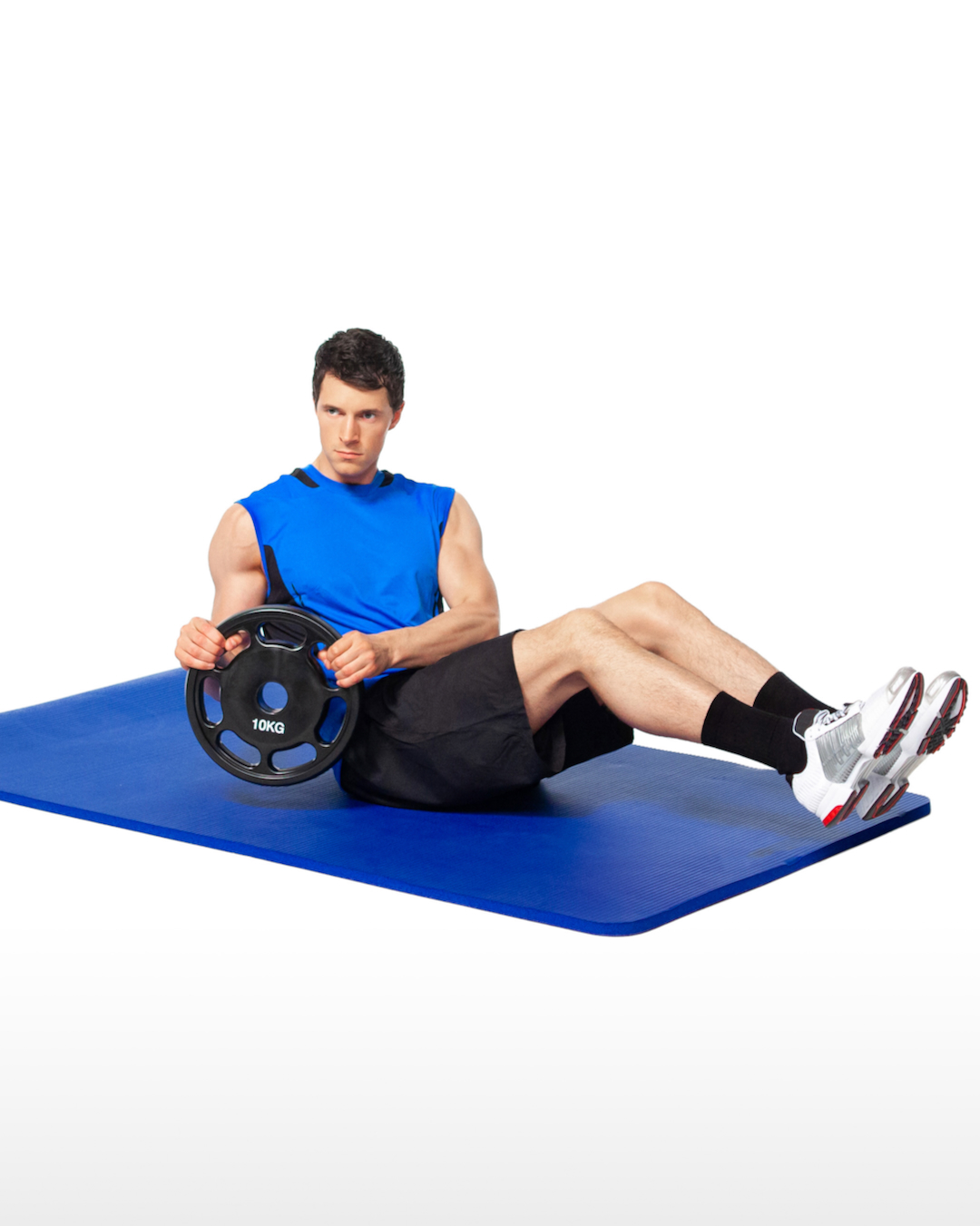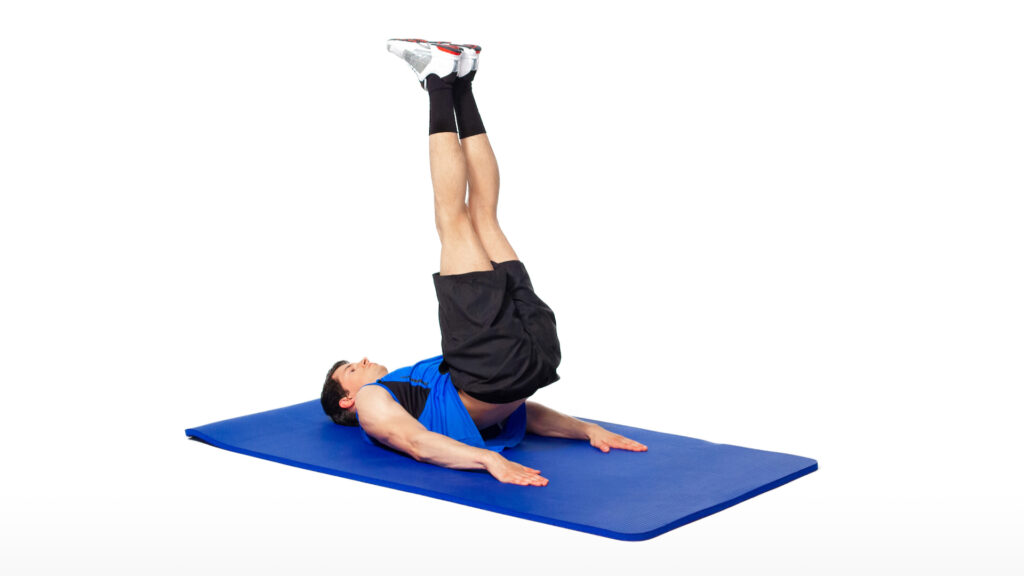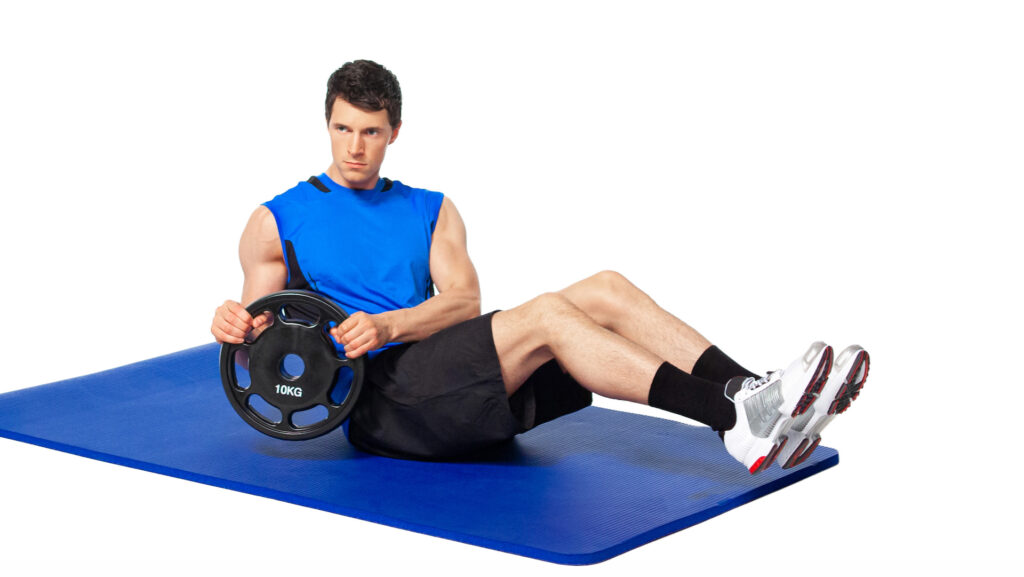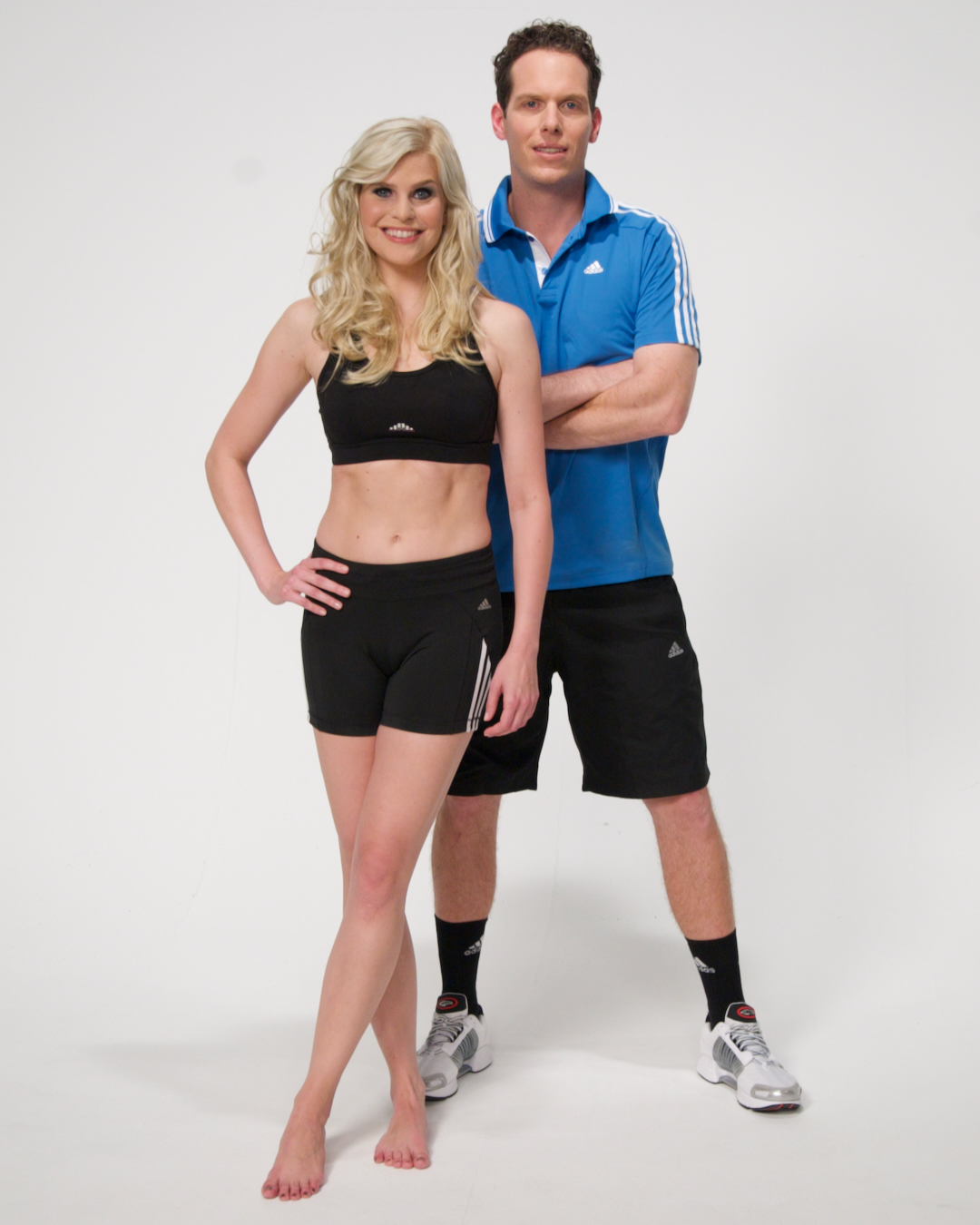
Why Core Training?

In land-based sports all the action is ground driven, meaning the athlete pushes off the ground and transfers energy through the kinetic (movement) chain in order to exert force to e.g. kick a football.
The reason that the core is relevant is because there are the most connecting points in the movement chain.
This means that there is the highest potential for energy “leakage”, which consequently leads to a decrease in force production. Therefore, strengthening the core makes sense.
Bottom-Up Energy Transfer

Since land-based sports are ground driven, athletes conceptually start with 100% of potential energy at the feet (bottom-up energy transfer).
As the athlete starts the motion (e.g. hits a tennis serve) and releases the ball he/she is transferring energy through their body via the kinetic chain:
- ankles
- knees
- hips
- core
- shoulder girdle
- elbow
- wrist
Depending on how efficient the athlete can transfer energy from the ground through the body the speed of the tennis ball will be affected. The more energy can be transferred, the harder the ball can be hit.
Factors That Impact Power Production

How much energy can be conserved and applied at the point of contact depends on how effectively the energy can be transferred through the body (the joints that make up the movement chain) and then applied to the object (ball).
In other words, the velocity of the tennis ball, available energy and overall impact of the serve is going to be determined by:
- how much force can be generated from the athlete’s feet
- how much gets transferred through the body (core)
- how much of that energy gets applied to the ball
So, if there is a player that is very efficient in energy transfer then he/she might achieve (e.g.) 85% of that initial energy (feet) at the point of contact, which means a high serve velocity.

On the other hand, is a player rather inefficient with transferring energy through the body then energy will be “lost” during the movement chain and he/she might only be able to apply (e.g.) 50% of the initial energy, which means a low serve velocity.
Why Core Training is Important for Athletes
Now, in theory, the potential in the player’s body is 50% greater than what he/she is producing.
This can explain why there are some players that can “only” hit 110mph on their first serve but once their form got better and they are conditioned properly then they increase to 130 – 140mph serves.
These potential exist! You just have to get to them and that is the premise behind tennis conditioning, weight lifting and core training!





